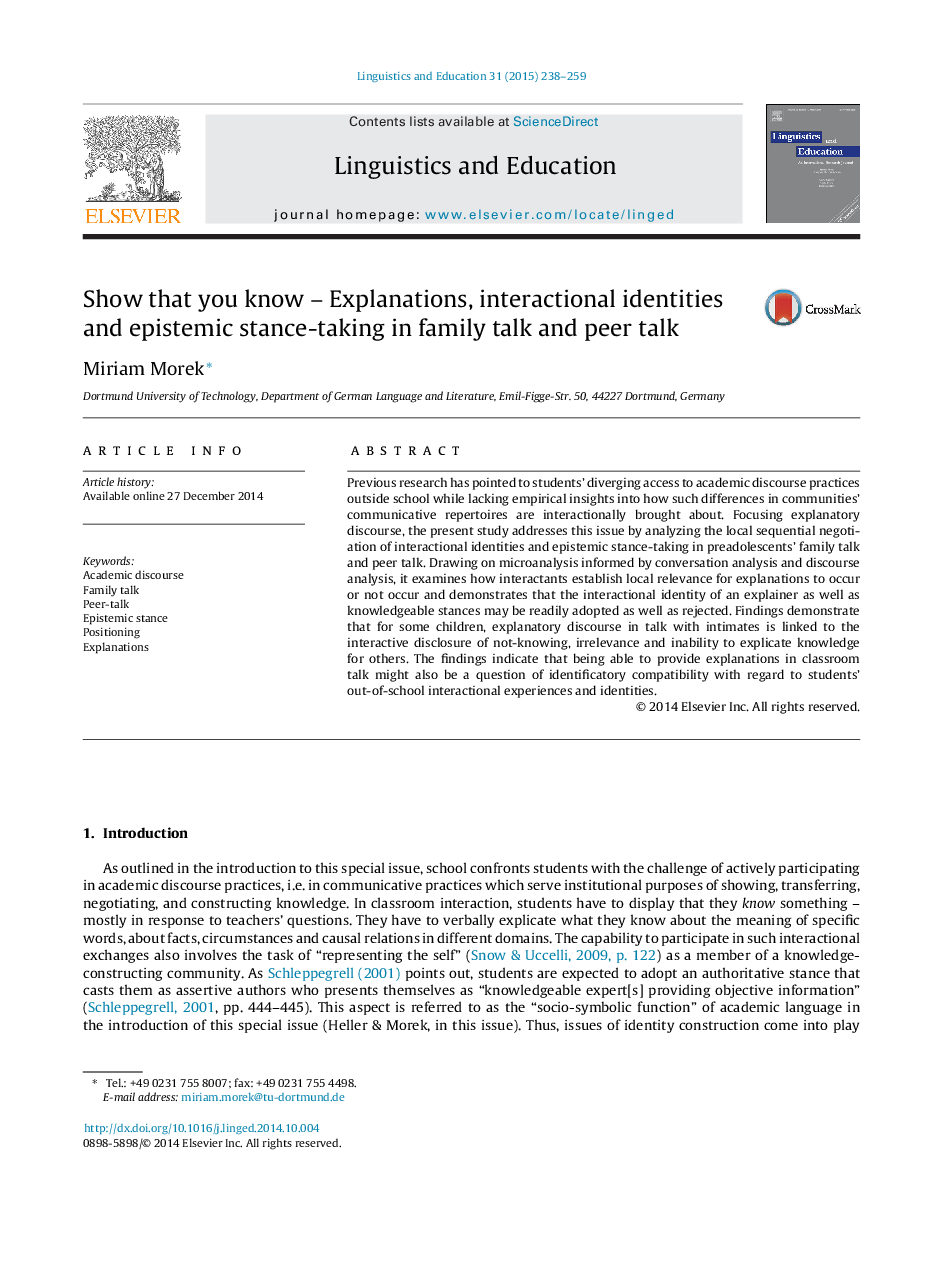| Article ID | Journal | Published Year | Pages | File Type |
|---|---|---|---|---|
| 366106 | Linguistics and Education | 2015 | 22 Pages |
•Explaining is linked to adopting knowledgeable stances in conversation.•The interactional identity of an explainer may be readily adopted or rejected.•Interactants may enhance or reduce the local relevance for explanations.•Students’ interactional experience with explanatory discourse outside school differs.•It may be more difficult for some preadolescents to adopt knowing stances in class.
Previous research has pointed to students’ diverging access to academic discourse practices outside school while lacking empirical insights into how such differences in communities’ communicative repertoires are interactionally brought about. Focusing explanatory discourse, the present study addresses this issue by analyzing the local sequential negotiation of interactional identities and epistemic stance-taking in preadolescents’ family talk and peer talk. Drawing on microanalysis informed by conversation analysis and discourse analysis, it examines how interactants establish local relevance for explanations to occur or not occur and demonstrates that the interactional identity of an explainer as well as knowledgeable stances may be readily adopted as well as rejected. Findings demonstrate that for some children, explanatory discourse in talk with intimates is linked to the interactive disclosure of not-knowing, irrelevance and inability to explicate knowledge for others. The findings indicate that being able to provide explanations in classroom talk might also be a question of identificatory compatibility with regard to students’ out-of-school interactional experiences and identities.
